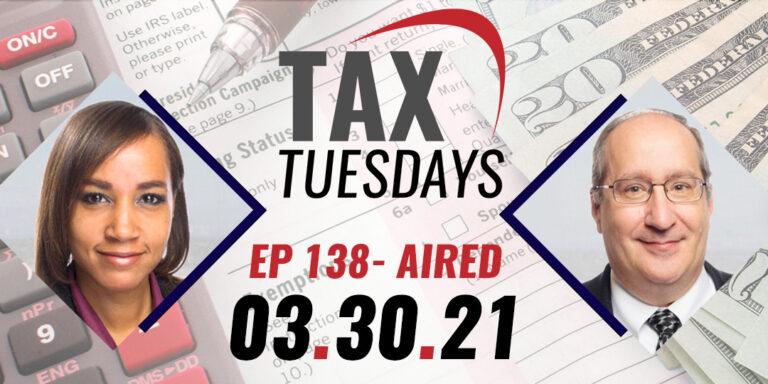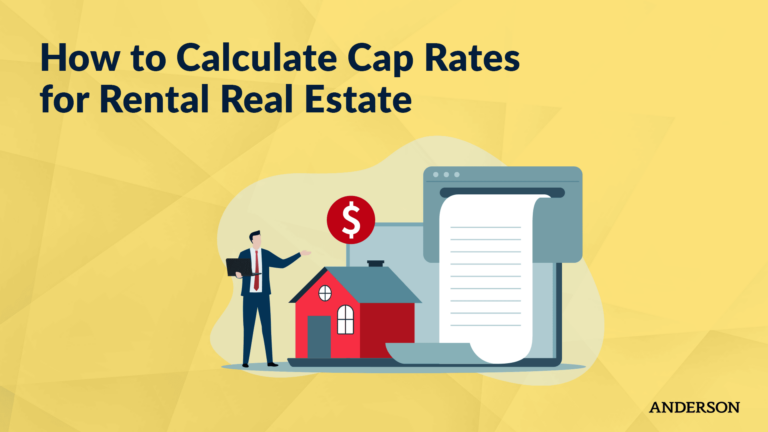What Real Estate Deductions Can You Use?
In this episode of Toni Talks, host Toni Covey, Director Of Professional Services, covers Real Estate Deductions. Discover what deductions will serve you best.
Want to Know More About Real Estate Deductions?
This post will discuss real estate deductions as they relate to:
- Rental Properties
- Investment Properties
- Flip Properties
- Passive vs. Active
In discussing these different areas, you will see the answer to: “Can I take a deduction?” is often, “It depends.” The goal of this article is to provide some clarity.
Rental Properties
Some questions to ask when dealing with rental properties are:
- Is it just a rental?
- Is it an investment?
- Is it a flip?
A rental will show up on your Schedule E. The best way to learn more about this is to Google IRS Form 1040 Schedule E. You will see it right there on the form. It lists three properties per form.
Following the form (if you Googled it), you will see that Property A corresponds to column A regarding what expenses are deductible. It will have things like advertising, auto, and travel, clearing, and maintenance, commissions (if you are paying commissions there).
Insurance, legal and professional fees (i.e., paying money to Anderson to set up an LLC).
These are deductible against your rental income.
You’ve also got management fees for the property managers, mortgage interested expense (including other interest such as a loan to improve the property). One example is if you financed putting solar on your property. Another example is if you are financing a string of coin-operated laundry machines.
Taxes, property taxes, and utilities, to name a few more.
Depreciation
Depreciation is a big one because it’s sort of a “phantom expense” because it’s not something that’s actually coming out of your own pocket.
As you can see, this is what makes real estate an attractive investment because of depreciation–a paper loss–even though you have a positive cash flow.
Anything that doesn’t fall into the above categories goes into “other.” Things like lawn care, HOA fees, pool maintenance, and things like that.
Repairs
Repairs are a big one. People often ask, “What’s a repair, and what’s a capital expenditure?” The safe harbor rule is that if it’s $2,500 or less (including labor and materials), then it can be put into the repair category to deduct in the year that you paid it.
If it’s above that amount, then you need to look at what the underlying fix is. If it’s just fixing some pipes that burst, then that is going to be just a repair. Conversely, if it’s repiping the whole house, then that’s going to be a capital improvement.
When it comes to depreciation remember, that you cannot deduct your mortgage. You can only deduct your interest payment on the mortgage.
Investment Properties
Investment properties here are considered to be properties that are purchased and held for appreciation purposes.
There are limited deductions on investment properties. You will be back on your Schedule A. You are really only allowed to deduct any investment interest expense that’s related or property tax that’s related.
However, if you start renting, then you go back to all those things we discussed above.
Flipping Properties
With flipping, you must consider intent. The IRS loves intent. If you purchase a property with the intent to sell it, it is called “inventory.” Inventory is NOT depreciable. It doesn’t matter if you held the property for twelve months or more, or less than 12 months. It’s all about intent.
Please note: Flipping does not belong on your Schedule D. It is a Schedule C activity. Flipping real estate is an active activity that is subject to self-employment tax.
If you do too many flips on a regular basis, you could be considered a dealer. This opens you up to a number of things you don’t want to be associated with. For instance, depreciation is gone. As a dealer, 1031 Exchanges are gone. Installment sales are gone.
At Anderson, we often recommend doing flips in a different manner.
We often recommend the C corporation. This will subject you to all sorts of unfavorable tax forms. If you are flipping even though you have an extensive rental portfolio, you can’t do a 1031 Exchange. So it’s not worth it. We recommend doing no more than two flips a year. Otherwise, you will be entering dealer status–which, as mentioned, you lose a lot of deductions.
We often recommend doing a flip in a separate corporation.
Passive vs. Active
Once again, we are talking about rental real estate. Traditionally, it’s a passive income. If your deductions exceed your income, it’s considered a passive loss.
The question is: “What can you do with that passive loss?”
For starters, passive losses generally are only deductible up to $25,000 if your other income is below $100,000.
As your regular income goes from $100,000 to $150,000, it gradually reduces that passive loss until it’s gone after $150,000. Therefore, passive losses are kind of hard to deduct. When you can’t deduct passive losses, they are carried into future years until you 1) have passive income or 2) you dispose of the property.
What makes being a real estate professional so attractive?
Why would you want to be a real estate professional by IRA standards?
Being a real estate professional turns this passive rental activity into non-passive activities. Therefore, those losses are now going to offset your assets.
Qualifying as a real estate professional will allow you to deduct.
How can you qualify as a real estate professional?
While there are many caveats to rep status, the big three are:
- You must work 750 hours in the year managing your rentals.
- You must have to have 500 hours of material participation
- More than 50% of your time must be spent managing your rental properties.
Therefore, if you work full-time (i.e., W2 wage earner), you wouldn’t be able to meet these qualifications for rep status.
The Takeaway
Well, I hope you’ve enjoyed and found today’s Toni Talk informative.
If you’d like to discuss any of these things further, you can be sure to go ahead and give us a call, so we can set up a chat.
Thanks so much.
As always, take advantage of our free educational content and every other Tuesday we have Toby’s Tax Tuesday, another great educational series. Our Structure Implementation Series answers your questions about how to structure your business entities to protect you and your assets. One of my favorites as well is our Infinity Investing Workshop.
Additional Resources:
Free Strategy Session with an Anderson Advisor
Receive a detailed risk assessment to assist in lowering problem areas that could wipe out all of your assets with one wrong move. Speak with an Anderson Professional Advisor to get your FREE Strategy Session.
Limited-Time Offer: ($750 value.)











